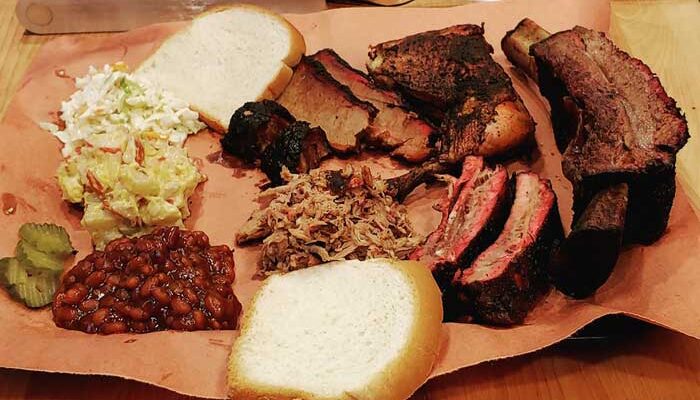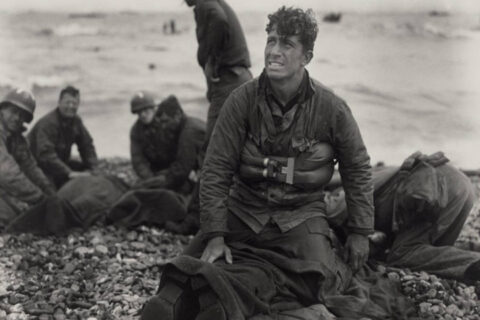Dixie, our home, has gone though a significant and unprecedented demographic shift in the past few years as the native Southern population declines and others, be they from Mexico, India, or the North, surge in numbers. And, it is a trend that’s spreading. In the late 1980s, Hank Williams, Jr. could sing about how Miami was no longer part of Dixie – today, one could say that about half of Florida, large areas of Georgia, central North Carolina, northern Virginia, several areas in Texas and so on. Even portions of Alabama, Mississippi, and Louisiana, long thought of as “the most Southern place on Earth,” are losing their identity. The effects are noticeable as increasingly progressive politicians are elected and more Confederate monuments are taken down. This is possible because many of the South’s newest inhabitants have no attachment to the land or culture, outside of their own economic interests.
But, the evidence of demographic change that has caught the bulk of the attention from both the press and Southern Nationalists are the end stages of that shift – the decline of Dixian identity in its final form. That leads to an interesting question: if the election of the likes of John Ossoff or Tim Kaine mean the decline is in its final stage, then what did the beginning of it look like? What was the canary in the coal mine that warned that a particular area was losing its Southern identity? The answer, I think, is the survival of chain barbecue restaurants.
When I mention chain barbecue restaurants, I don’t mean a local chain with several locations. I mean a huge national chain moving in and doing well. Barbecue is a major part of Dixian culture, with each region having its own variation in meats, sauces, and technique. Pork is the most popular meat, but beef can be found in Texas, while mutton reigns supreme in Kentucky. The same can be said for sauce, i.e., the white sauce of North Alabama contrasted with the mustard-based sauce of South Carolina or the ketchup-based sauce of Memphis. Despite all these differences, it is all Dixian. It, honestly, reminds me of cheese and wine in Europe, where one can travel just a few hours and find radically different recipes. For the Yankees though, barbecue doesn’t hold this importance. To them, hot dogs and hamburgers are “barbeque,” provided they are cooked outside. And, they say we’re uncultured!
As a people, we are barbecue snobs and proud of it, and major chain barbecue restaurants are going to be horrible as a rule. This is true for most styles of food, but is particularly true of barbecue because of the “feel” in cooking it. It is something close to an art form and it doesn’t mesh with a chain’s emphasis on uniformity and maximizing profits. Plus, it takes years to truly become a barbecue master, something that a chain restaurant, with its high rate of turnover, cannot achieve. A chain barbecue restaurant succeeding in a demographically-dominant Dixian town has about the same survival rate as a Pizza Hut in an Italian neighborhood in New York. What’s the point in going to a chain when you can get something much more authentic, and usually for the same amount of money, but also made by locals? Just as a Pizza Hut surviving in an Italian neighborhood means that neighborhood is far less Italian than it used to be, a chain barbecue restaurant surviving in a Southern town means that said town is beginning to decline demographically.
I saw this play out in my own town. About twenty years ago, a chain barbeque joint moved in. I can distinctly remember everyone in town making fun of it – wondering who in their right mind would want to go there when there were so many better places? It lasted about six months. But, about ten years ago, we got another such restaurant (different chain) and, at the time, I didn’t think much of it. Sure, it was in a better location, but the fundamental problems were still there – it was a huge national chain in a town where the locals were fiercely proud of their homespun traditions. That chain is still in business. And, judging by the crowd I see when I drive by it, is still very popular even as I do not know a single native that has eaten there even once. It was shortly after this that I saw a noticeable uptick in the amount of people that had moved to my home town from other places, as well as, a decline in our accents and the display of the Confederate flag – this was well before the events in Charleston. When I was growing up, we would joke about Tennessee being far enough “north” to be suspect.
Dixie still has many regional variations and while the barbecue may be different in Texas than it is in South Carolina, it does serve to unite our culture. It serves as a way to get to know people, and until the rise of television was the chief way in which politicians would stump for votes. In the South, it is more than food, it’s community and an all-day event. So, when a chain joint can come in and survive with its emphasis on efficiency and uniformity, defeating the localism of native barbecue, it means there is now a sizable portion of people in the area that are not native Dixians.
Real Southerners never visit a Famous Dave’s when they’re hankering for a pulled pork sandwich. If you see a line wrapped around the door, realize that little part of the South isn’t Dixie anymore.
-By Harmonica

O I’m a good old rebel, now that’s just what I am. For this “fair land of freedom” I do not care at all. I’m glad I fit against it, I only wish we’d won, And I don’t want no pardon for anything I done.






Another canary is being laughed at, in a store, for your accent. Or going to the model train shop and finding mostly Pennsylvania Railroad and Boston and Maine stuff, but no Frisco, Katy, MoPac or Cotton Belt cars and locomotives.
Or sitting in Sonny Bryan’s BBQ and laughing at a surprisingly cute Yankee girl, who thought that the bones would be left on a rib sandwich.
Sitting in a mall down in Dallas and thinking that you’re in Minneapolis, because of the accents of most of the people shopping there. And having to stop at a BBQ pit, on the trip up from Dallas, because it’s dinner time, you’re hungry, and you want to hear Texan being spoken, to reassure yourself that you’re not in Minnesota, or Iowa.
Most of the chain BBQ joints in my part of Texas hire Mexicans and promptly go out of business. Colter’s are out of business, because of hiring Mexicans.
The biggest problem are the White Yankee transplants. Without them, there probably wouldn’t be any other foreigners in Dixie, either.
As a Dixie Serb, I found the Southerners (I live in Mississippi for over twenty years) the most similar to my people – never mind the food like blood sausage, head-hog cheese, pigs, feet etc…were specialties served usually during important holidays mainly in the winter. Another similarity between the Serbs and the Southerners, is we are just as much demonized by the Western media and the liberal elites.
2021: They just want to grill
2030: Grilling is outsourced to Hispanics
Tater salad nationalism
Messing with a boomers barbeque ain’t wise…